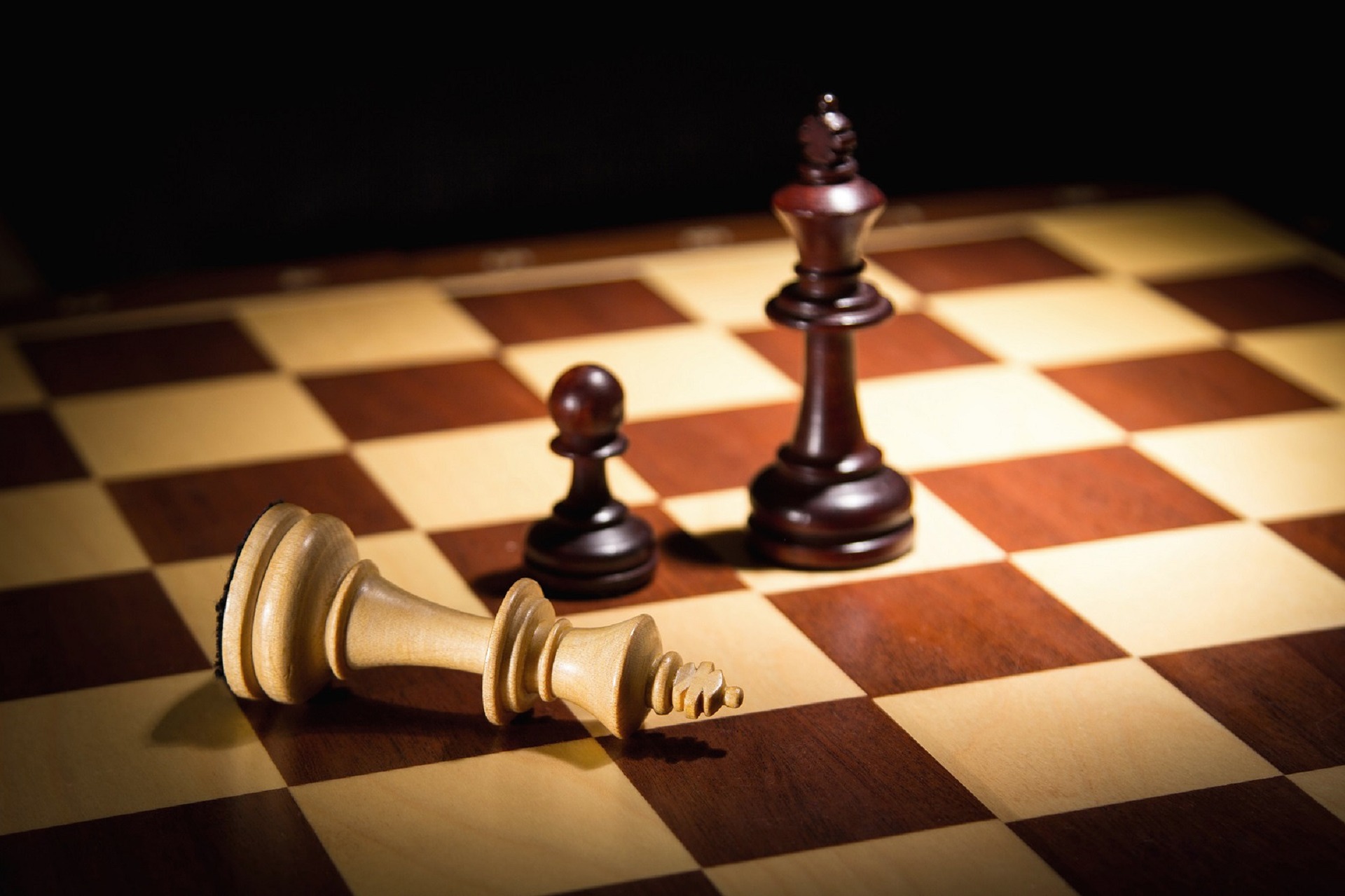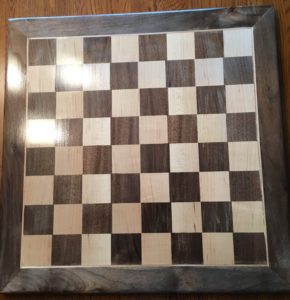The Patience of Pawns

We Hate to Wait
None of us likes the feeling of having nothing productive to do. Standing in a grocery line or sitting at a bus stop feels like a waste of time. We do not like waiting. Yet there are times when waiting can be strategically important. I constantly need this reminder. I feel like I’m trapped in a perpetual wait right now in my life. I am no longer productively employed as I wait for my next job opportunity to open up. All too often the wait is hard.
However, there are one or two good things about this long wait in which I find myself. For example, my current life situation has enabled me to try my hand at some basic woodworking. I’m no pro, but I’m gradually learning and growing in my ability. A few months ago I decided to try to put together a nice inlaid chess board using maple (for the light squares) and walnut (for the dark squares). While not perfect, the board came out pretty nice.

Insights From Chess
Of course, making a chess board got me thinking about chess. While I played on the chess team in high school, and then fairly regularly in college, I can’t remember the last time I sat down at a chess board and played a serious game. My memory of openings, tactics, and the art of the end game has become very fuzzy with time. I’m embarrassed to say I even found myself having to think pretty hard about which direction to turn the board to set up the pieces.
Last week I decided to remedy my rusty chess skills. I downloaded a beginner’s guide to chess from the library and began to go through it. Gradually I remembered or relearned things I once knew forty years ago.
The Importance of Pawns
Most of the information I gleaned was relevant only to playing the game. But this morning while doing something totally unrelated, I began thinking about pawns in new ways. By all accounts, the pawn is the most insignificant piece on the chess board. While each player has eight, individually, they have the lowest value and are often sacrificed to gain tactical advantage or to capture a more important piece.
However, pawns can be very important in a game. In the early stages, they can stake out the center of the board and determine who will dominate that important area. If positioned well, they support the bishops, knights, rooks and queen in their quest for tactical advantage. And very importantly, they provide an excellent defence of the king during the early and middle stages of the game.
Several times, the author of the book I read emphasized that pawns should stay put unless there is a compelling reason for them to move. They should not be moved out without a great deal of thought. This principle is particularly important with respect to the pawns in front of the king. They should stand guard, waiting for the right time to move.
In the end game, pawns that remain can take on great importance. At the right time, they can be moved toward the end of the board and, if successful, can be transformed into one of the most powerful pieces on the board (such as the queen). A single pawn advantage at the tail end of a game can mean the difference between victory and defeat.
Oh, To Be Patient Like a Pawn
There are times in our lives when we are asked to wait, like those pawns in the early stages of a game. We feel we have little to do with how the game is unfolding. The knights, bishops and rooks of the world seem to be getting all the glory. We long to spring into action. Yet the One controlling the strategy of the game has seemingly forgotten about us. We languish behind the lines.
Perhaps, however, the Grand Master is waiting for the right moment to use us. Perhaps that moment has not arisen. Indeed, if the Master moved us into the fray too early, we would muck up the whole works and unnecessarily sacrifice ourselves to no particular end.
So, I’ll wait contentedly near the King, knowing that at the right time, the Master will put me into the fray. And if I wait for Him, my effectiveness will be multiplied a thousand fold. The prophet Isaiah probably knew nothing of chess, but he captured the patient wisdom of the lowly pawn when he said,
They who wait for the LORD shall renew their strength; they shall mount up with wings like eagles; they shall run and not be weary; they shall walk and not faint. (Isaiah 40:31, ESV)

